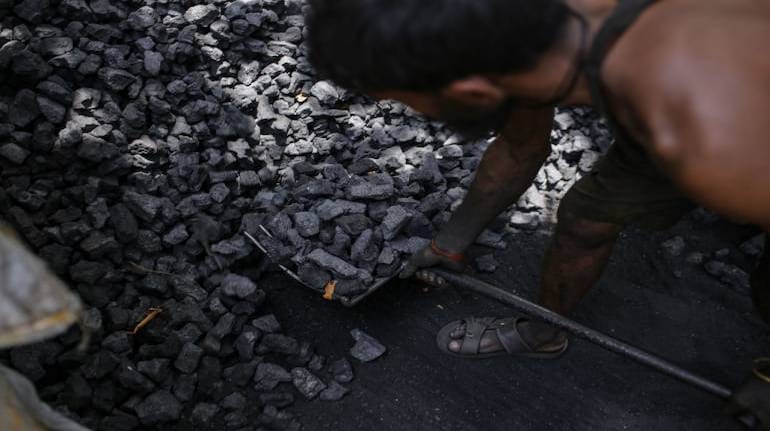



The Damodar Valley Corporation (DVC), a government-owned power generator which operates in the Damodar river area of West Bengal and Jharkhand, is going to start coal production from the end of this month after a gap of six years, senior officials from the corporation told Moneycontrol.
“DVC started mining operations at its new tubed coal mine project in Jharkhand’s Latehar district from late last month. Mining activity is going on in full swing at the site and coal production will begin in a week or two. We have also tied up the supply of the produced coal with two thermal power plants – one each in West Bengal and Jharkhand,” said a senior DVC official requesting anonymity.
This is the third coal mine project operationalised by the DVC, with the second one shutting in 2016.
Chequered past in mining
DVC has not had much success with mining In the past. The last operational mines of the DVC were the Bermo mines in Jharkhand’s Bokaro district. The mine was allotted to DVC in 1951 and ceased operations in 2016 due to the expiry of its mining lease.
The DVC had also operated the Barjora (north) coal mines from 2005, but had to shutter that in 2014 as the Supreme Court cancelled its mining lease finding the allocations “illegal and arbitrary”.
The DVC had a few other mines that were allotted to it, but their operations never took off. The Khagra-Joydev coal mines were allocated to it in 2015, but the mine never started coal production due to land acquisition issues and protests from the locals. DVC was also allocated the Kasta (east) coal mine, but surrendered it to the Ministry of Coal as it found the project “unviable.’’
6 MT production target
The Latehar tubed coal mine project will produce 1 million tonne (MT) of coal in the first year, 2.15 MT in the second year, 4 MT in the third, 5 MT in the fourth year, and 6 MT by the sixth year. The mine has a maximum annual capacity of 6 MT, which will be produced till its 22nd year. The phasing out of the mine will begin from the 23rd year, when the tonnage will be brought down to 5 MT, and subsequently to 2.5 MT by the 25th year of the mine, DVC told Moneycontrol.
Coal from the mining project will be used in West Bengal’s Mejia Thermal Power Station (MTPS), which has an installed capacity of 1,000 MW, and also in Jharkhand’s 250 MW Chandrapura Thermal Power Station (CTPS), the DVC said in an email replying to queries sent by Moneycontrol.
The Latehar project has undergone cost escalation due to inflation owing to delays in getting approvals and clearances. In 2018, the estimated project cost was Rs 1,300 crore, while now it will cost Rs 1,580.86 crore. The project is close to completion.
Renewed push for thermal power
DVC, which has mostly been an electricity generator, now getting back into coal production signifies India’s renewed thrust on expanding its thermal power generation capacity to meet the country’s growing electricity demand. In line with this, the NTPC (National Thermal Power Corporation) is also going to award contracts for 4.8 GW of coal power projects over the next three years.
Per data shared by the Coal Ministry, India’s power sector will need 299 MT of additional coal annually by 2030. In the current financial year, the coal required by India’s thermal power plants is about 753 MT, which will go up to 1,034 MT by 2030.
The push for coal-fired power plants is an outcome of the Russian invasion of Ukraine, which has resulted in an energy crisis as the prices of crude oil, gas, and coal imports have hit the roof. India’s renewable energy (RE) capacity has increased too, but it is not yet able to cater to night-time demand on a large scale due to the lack of storage systems.
India has about 180 thermal power plants. But in April-May this year, the country faced an unprecedented power crisis due to a sudden heat wave which started earlier than usual. The power crisis stemmed from a shortage of coal, despite Coal India producing the fossil fuel at record volumes.
The coal shortage, per officials of the Power and Coal ministries, was not due to low availability of coal at the mines, but primarily because of logistical issues. Both the ministries are now working on resolving the logistical issues in the end-to-end supply of coal from the mines to the thermal power stations.
At the ongoing 27th UNFCCC Conference of Parties (COP27) at the Red Sea resort town of Sharm El-Sheikh in Egypt, India has been leading the push to conclude with a decision on phasing down all fossil fuels, including oil and gas, and not just coal.
But the first draft of its so-called “cover decision” that the UN climate agency published on November 17 largely retained last year’s pledge made at Glasgow to “accelerate measures towards the phase down of unabated coal power” and phase out fossil fuel subsidies.
Discover the latest Business News, Sensex, and Nifty updates. Obtain Personal Finance insights, tax queries, and expert opinions on Moneycontrol or download the Moneycontrol App to stay updated!
Find the best of Al News in one place, specially curated for you every weekend.
Stay on top of the latest tech trends and biggest startup news.